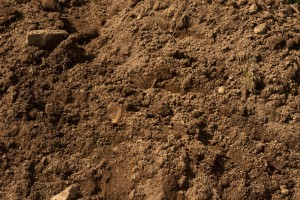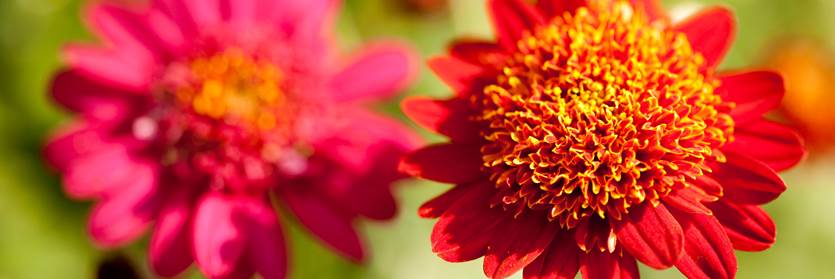Tip of the Week: The Way to Healthy Soil
Posted in Gardening Tips on April 12 2010, by Sonia Uyterhoeven
 |
Sonia Uyterhoeven is Gardener for Public Education. Join her each weekend for home gardening demonstrations on a variety of topics in the Home Gardening Center. |
 The care of your garden depends on your cultivation practices, how you are using the space, what you are growing (trees, shrubs, perennials, vegetables, annuals), and how intensively you are gardening. It is also influenced by soil conditions and your microclimate.
The care of your garden depends on your cultivation practices, how you are using the space, what you are growing (trees, shrubs, perennials, vegetables, annuals), and how intensively you are gardening. It is also influenced by soil conditions and your microclimate.
One of the latest trends in gardening (although not new) is that the soil is a dynamic, living system that needs to be managed, not by pouring harmful chemicals and salts into it, but by supplying it with its nutritional and cultural needs. Healthy soil means healthy plants—plants grown in fertile soil are less prone to pest and disease problems.
Soil plays a critical role in the life of a plant. It anchors a plant and supplies nutrients, water, and oxygen. Soil is an aggregate of sand, silt, and clay each with different properties; the larger particles of sand provide good drainage while the fine particles of clay retain moisture.
Organic matter breaks down into humic acid, a black gelatinous liquid that holds the soil particles together, leaving spaces for water and oxygen. Organic matter improves drainage, soil aeration, and the soil’s ability to hold nutrients.
Organic matter and soil are full of life. Bacterial and fungal microorganisms cycle nutrients and make them available to plants. Larger soil organisms such as earthworms work the soil by providing nutrients through their excrement and good drainage as they tunnel beneath the surface.
Compost—the breaking down and recycling of organic material—acts like a steam engine that energizes and drives this dynamic system. While compost is sometimes referred to as “black gold” because of the wealth of benefits it provides, incorporating compost into your garden replicates a process that nature does on its own.
This is important to remember when tending your garden. In naturalistic areas, leaving leaf litter to decay on its own is a healthy and natural way of composting. In highly cultivated or ornamental areas, add compost or mulch.
Next week, we’ll look at the best way to add compost to your garden.

